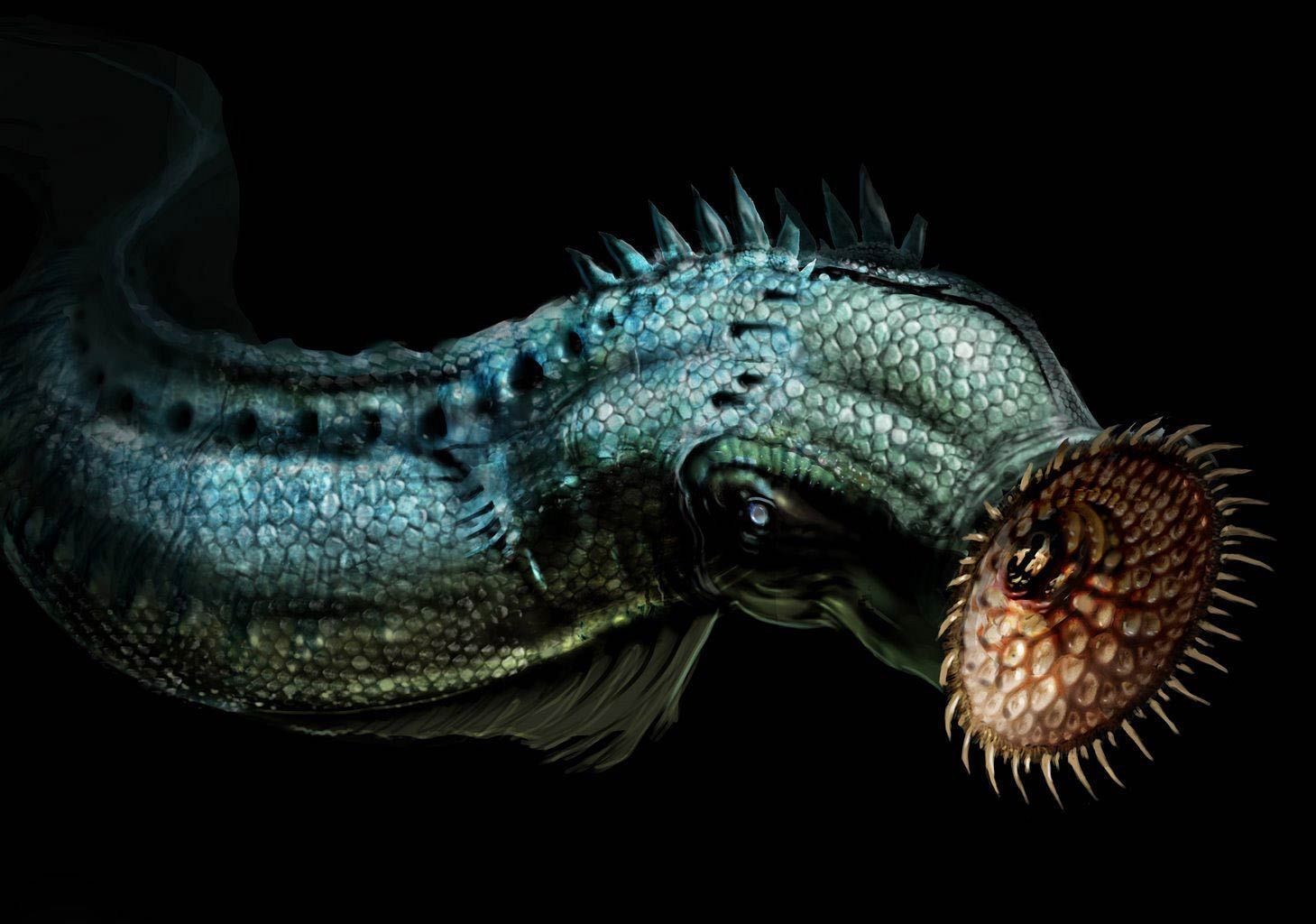Lamprey
| Type | Lamprey (common) | Giant Lamprey |
| Species | jawless fish | |
| No. Appearing | 5-20 | 1-4 |
| Behaviour | solitary | |
| Range | intertidal, wetland | coral reef, intertidal |
| Size | 25 in. long | 6 ft. 2 in. long |
| Weight | 9 lbs. | 240 lbs. |
| Intelligence | 0 | 0 |
| Armour Class | 9 | 8 |
| Hit Dice | 1 | 3 |
| Action Points | 2 | 3 |
| Max. Stride | 2 | 2 |
| THAC0 | 20 | 19 |
| Hp/Die | d2 | d8 |
| Attack Form | bite | |
| Damage | 1-2 | 1-6 |
| Special Attack | blood drain | |
Lampreys are ancient creatures whose bodies are characterized by a toothed, funnel-like sucking mouth. They inhabit both fresh and salt water bodies of water, preying upon other fish for food. When attacking, they attach themselves and suck their blood. There is danger for land mammals and humanoids who enter waters inhabited by these creatures, who will attack anything for food.
The common lamprey migrates from saltwater to freshwater in order to breed; these are the most dangerous, as they may be found in any large freshwater body of water. The giant lamprey breeds in intertidal pools but are less likely to be encountered because locals tend to be aware of their habitats. At those times of the year when giant lampreys gestate between 40 and 100 eggs, these pools can become extremely dangerous, until such time as the rising tide dissipates the "swarm."
Lamprey can be eaten and are considered in some parts of the world to be a prized delicacy, worthy of guestkitchen quality. Most do not like the taste, however. It takes some skill to prepare, because parts of the creature are highly toxic.
Advantages
A hit by a lamprey that causes 2 damage or more indicates the creature has successfully attached itself to its prey. Thereafter, until it is killed, the lamprey will drain the victim's blood, automatically causing damage each round. This damage equals 1-2 hit points for the common lamprey and 1-6 for the giant form.
See Bestiary
